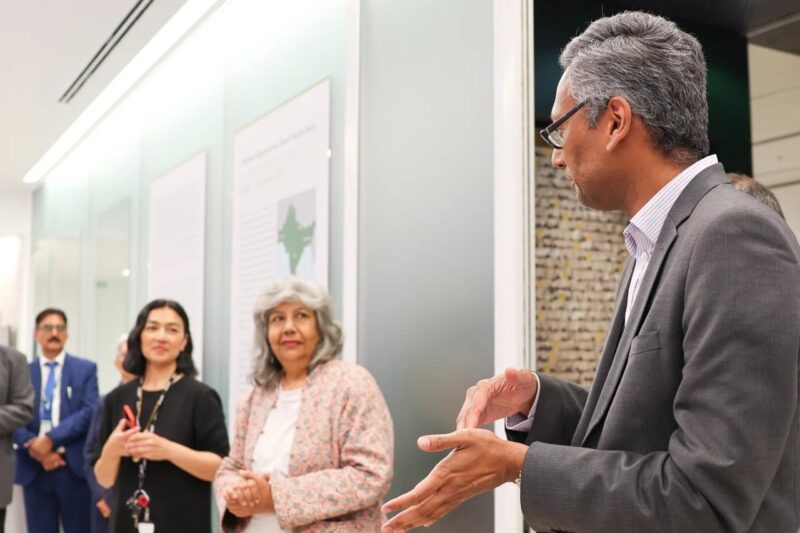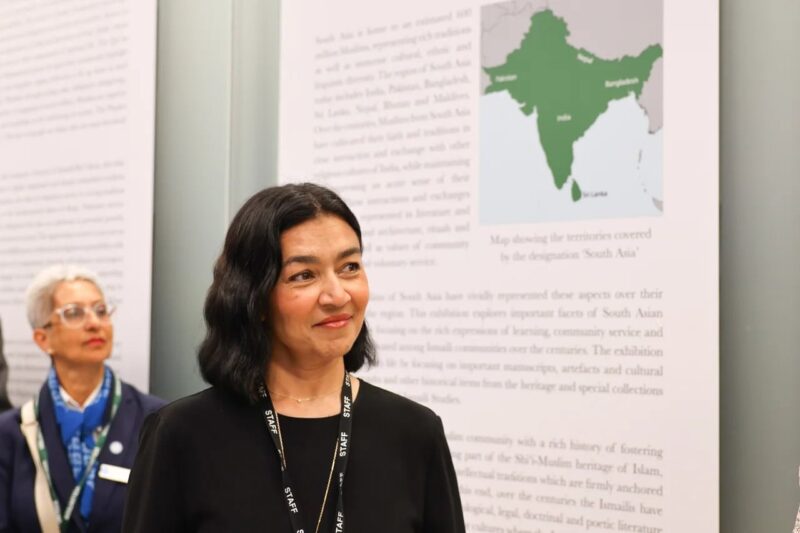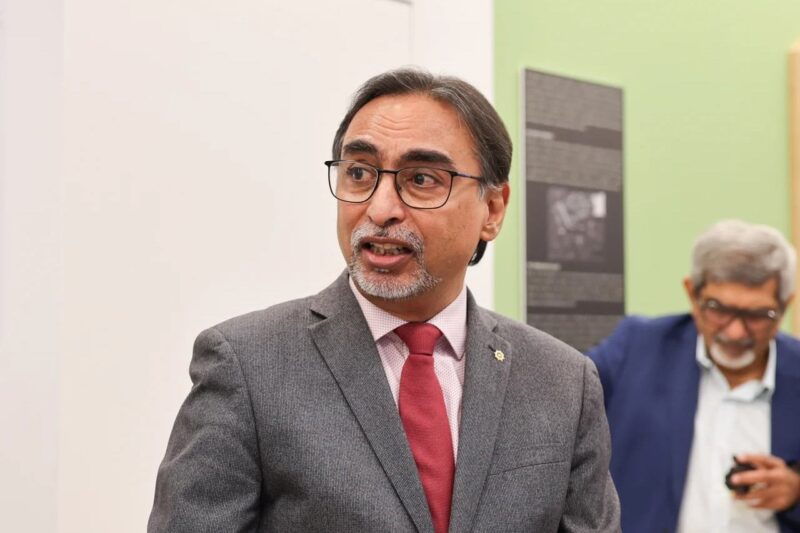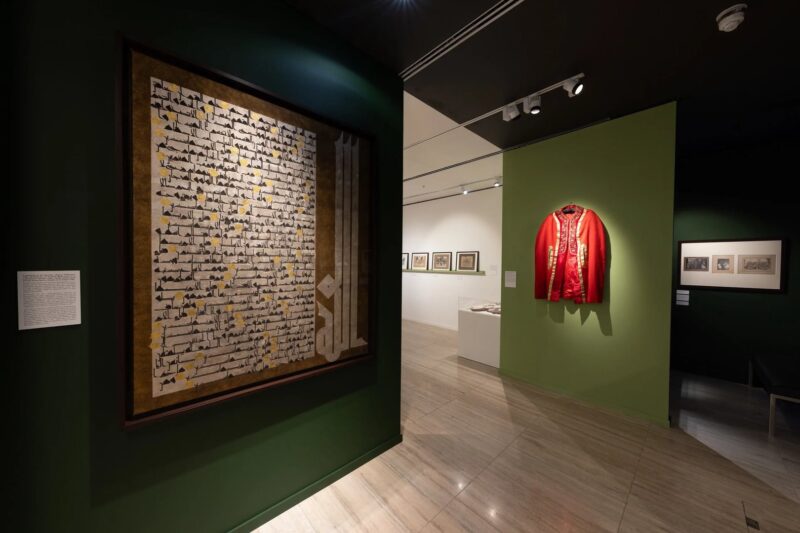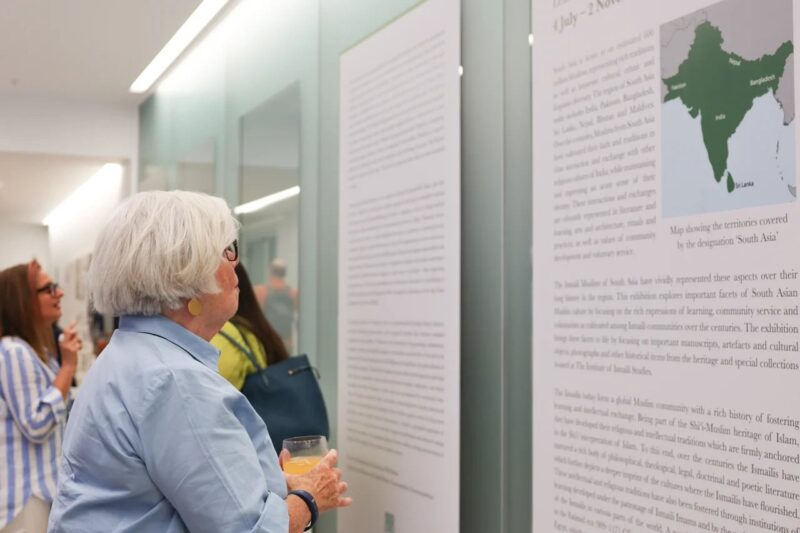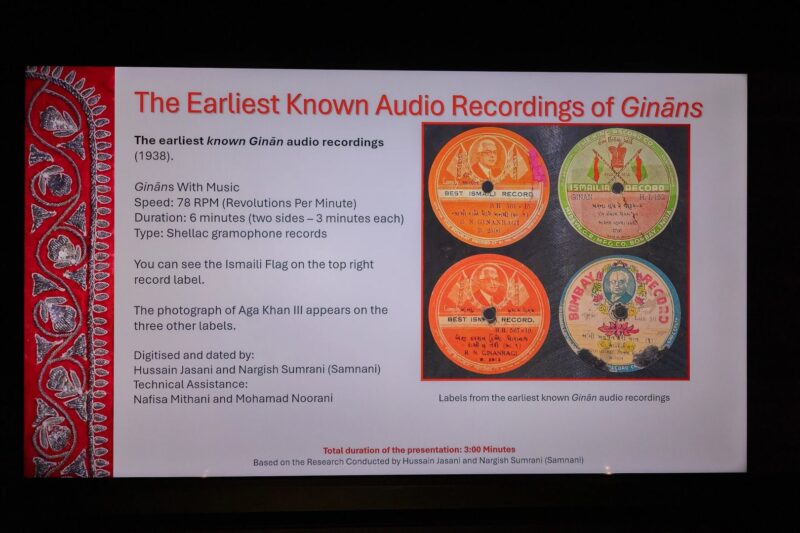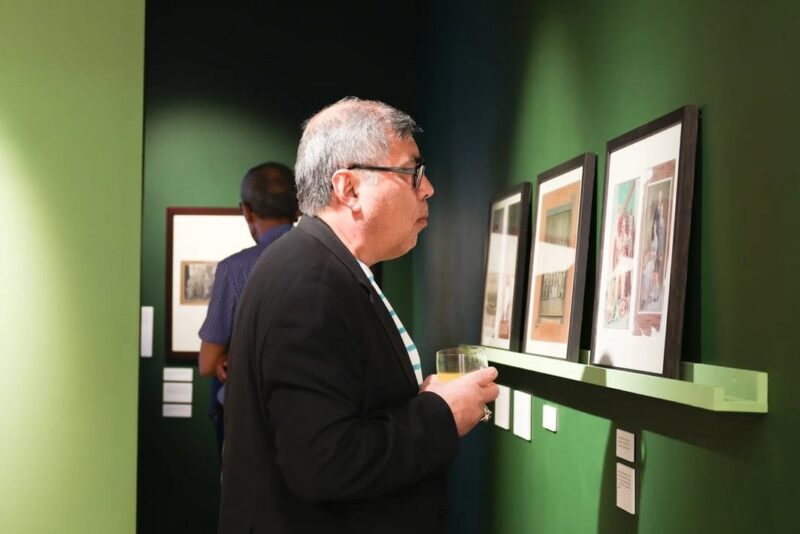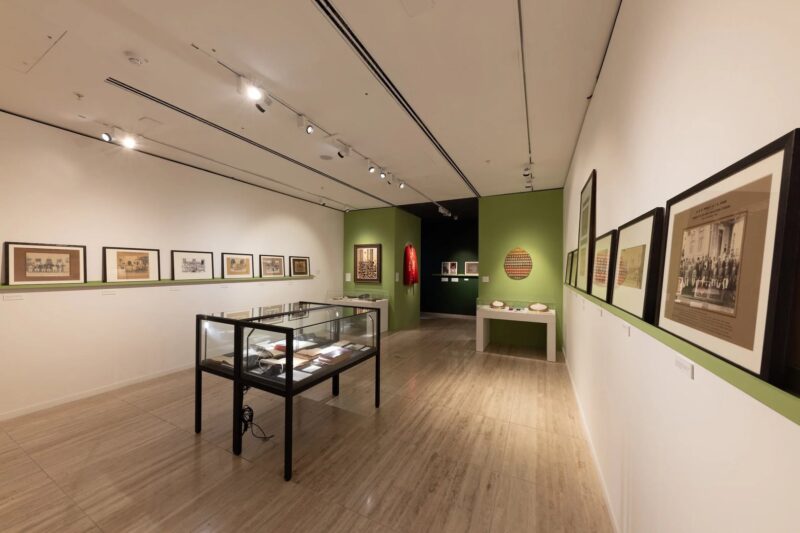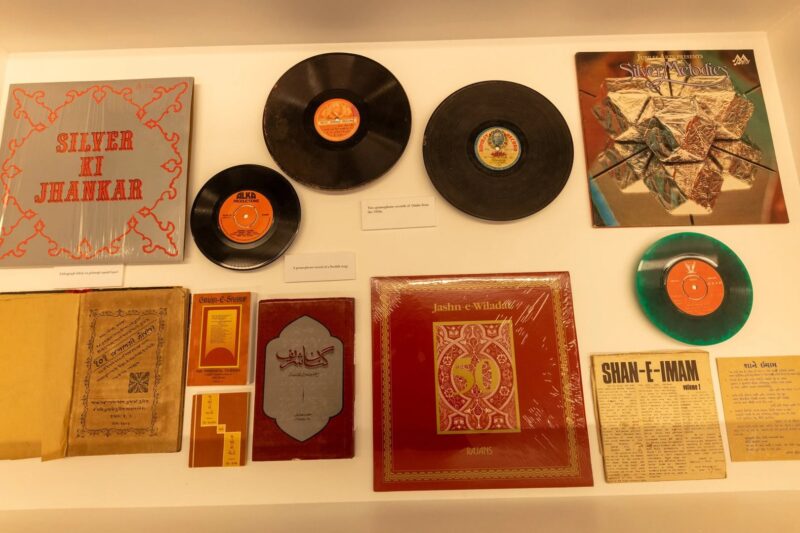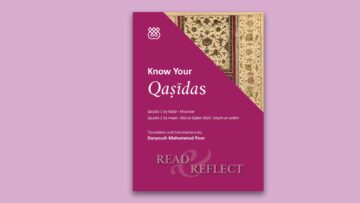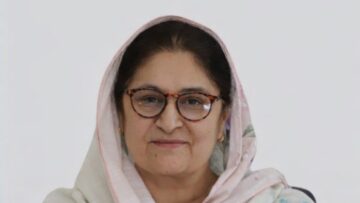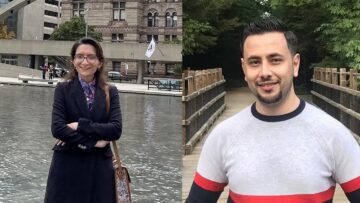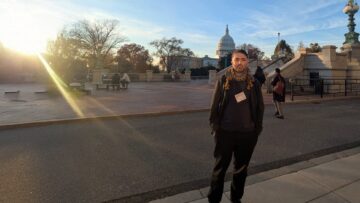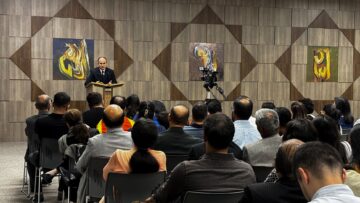Professor Zayn Kassam, director of The Institute of Ismaili Studies, inaugurated the exhibition Muslim Expressions from South Asia: Learning, Community and Voluntary Service, at the Aga Khan Centre Gallery on 4 July 2025. Curated by Hussain Jasani, Esen Kaya, and Wafi Momin, the exhibition features rare manuscripts, artefacts, photographs, and audio recordings from IIS, celebrating the heritage of learning, communal life, and voluntary service in South Asia’s Muslim community, with a special focus on vibrant Ismaili traditions. Speaking about the three cornerstones of the exhibition, learning, community, and volunteering, Professor Kassam highlighted the ways in which the three are interconnected.
Hussain and Wafi spoke passionately at the inauguration about illuminating the region’s cultural diversity and the historical interplay between faith, culture, and public duty. They explained how voluntary service among the IsmailisAdherents of a branch of Shi’i Islam that considers Ismail, the eldest son of the Shi’i Imam Jaʿfar al-Ṣādiq (d. 765), as his successor. is institutionalised through formal volunteer structures, leadership roles, and recognition systems celebrating sustained commitment and ethical leadership. Esen Kaya highlighted the curating process and the planning that went into the final installation.
The opening ceremony welcomed donors, governors, academics, community members, cultural practitioners, and distinguished guests who explored the thoughtfully arranged displays in an exhibition that delves into the rich cultural heritage, intellectual traditions, and vibrant practices of Muslim communities across South Asia, spanning India, Pakistan, and Bangladesh.
Displaying highlights from the heritage collections of IIS, the exhibition demonstrates how South Asian Muslims have expressed their distinct identities while engaging deeply with other religious cultures of the region. Notable among these expressions is the Ismaili community’s unique poetic tradition of Ginans — lyrical compositions in Gujarati, Hindi, Sindhi, and Punjabi languages that articulate themes of devotion, mysticism, and ethical conduct. The exhibition showcases audio recordings of Ginans and celebratory songs. It provides an immersive exploration of Ginanic poetry, where the visitors can experience the audio, view the records and know more about the research conducted by the team Hussain Jasani and Nargish Sumrani (Samnani) in identifying and dating the earliest known audio recordings of Ginans from 1938.
The exhibition also vividly captures the essence of community service (khidmat), a foundation of Ismaili Muslim tradition. Rooted deeply in Islamic ethics emphasising compassion, generosity, and social responsibility, this tradition has evolved into structured volunteer activities that foster community resilience and global humanitarian efforts through institutions such as the Aga Khan Development Network (AKDNThe Aga Khan Development Network (AKDN) is a contemporary endeavour of the Ismaili Imamat to realise the ethics and social conscience of Islam through institutional action. More).
Visitors to the exhibition are invited to trace centuries of intellectual, spiritual, and communal contributions from South Asia’s Muslim communities, gaining profound insights not only into their historical significance but also into their contemporary relevance.
Curated by Hussain Jasani, Esen Kaya, and Wafi Momin, supported by Naureen Ali, Russell Harris, and Nourmamadcho Nourmamadchoev, the exhibition is at the Aga KhanA title granted by the Shah of Persia to the then Ismaili Imam in 1818 and inherited by each of his successors to the Imamate. Centre Gallery, London, and is open until 2 November 2025.

